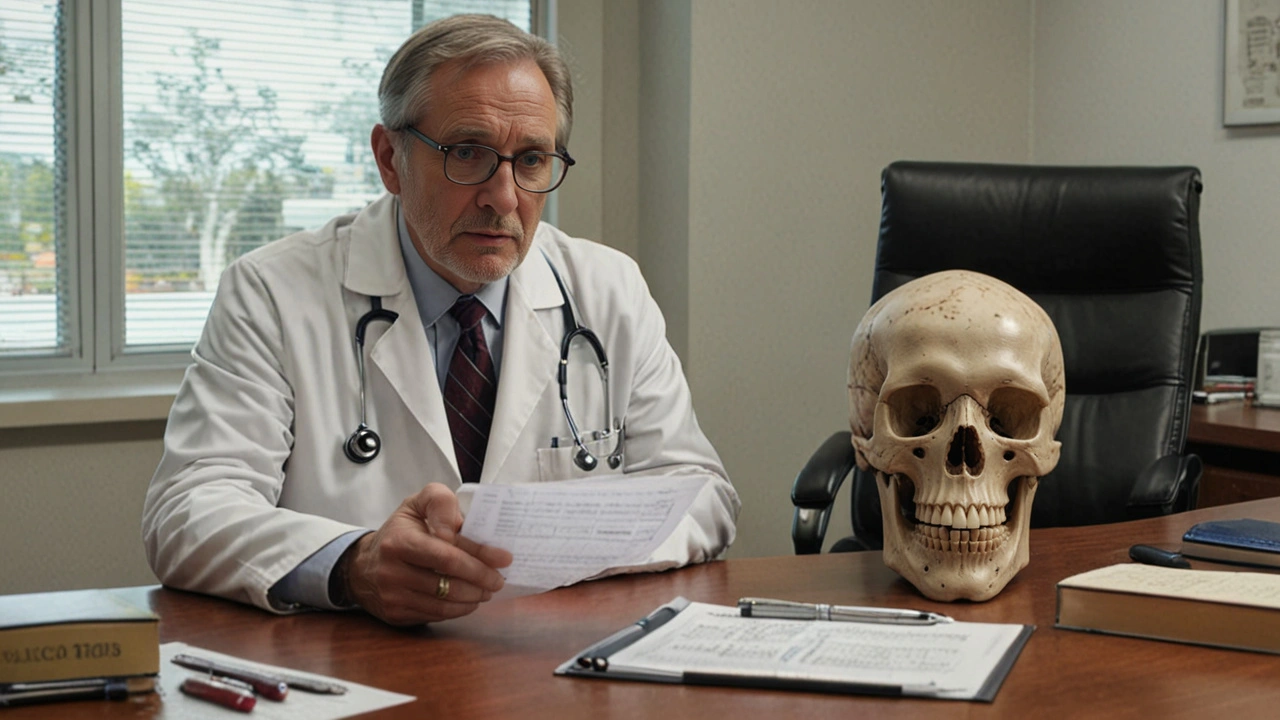Bone Health: Simple, Practical Steps You Can Start Today
Your bones do more than hold you up — they store minerals, protect organs, and help you move. Small changes now pay off later. Below are straight-forward steps you can start this week to cut fracture risk and keep your bones strong as you age.
Daily habits that actually help
Eat for your bones. Aim for about 1,000–1,200 mg of calcium a day from food first: dairy, canned salmon with bones, fortified plant milks, leafy greens (kale, bok choy), and tofu. If you don’t get enough from food, a supplement can fill the gap — but talk to your doctor before starting one.
Don’t forget vitamin D. It helps your body absorb calcium. Many adults use 800–2,000 IU daily depending on blood levels and sun exposure. Your doctor can check a vitamin D blood test and recommend the right dose.
Move your bones. Weight-bearing exercise forces your skeleton to adapt and stay strong. Walk briskly, jog, climb stairs, dance, or do resistance training two to three times a week. Even bodyweight moves (squats, lunges, push-ups) help. If balance is an issue, add light balance drills to reduce fall risk.
Watch what breaks bones indirectly. Long-term steroid use (prednisone), some acid-reflux drugs, and certain antidepressants can affect bone density. If you take medication long-term, talk with your prescriber about bone protection and monitoring. We have a helpful read on reducing prednisone dependence that’s worth checking.
When to test and who needs extra care
Ask about a DEXA scan if you’re a woman over 65, a man over 70, postmenopausal with risk factors, or anyone on long-term steroids. A DEXA gives a clear baseline and helps guide treatment if bone loss shows up.
Protect against falls. Remove loose rugs, add good lighting, use sturdy footwear, and keep clutter out of walkways. If you feel unsteady, a physical therapist can give balance and strength exercises that really help.
Consider meds if bone loss is found. Several proven treatments can slow or reverse bone loss. Your doctor will weigh fracture risk, side effects, and your health history to find the right option.
Use common sense with supplements and claims. Bone-boosting pills, herbal fixes, and fad powders often promise big results with little evidence. Prioritize proven basics: diet, vitamin D, weight-bearing exercise, and medical checks when needed.
If you want practical, related reads on this site, check our articles about steroid alternatives and common meds that affect bones. If any of this sounds urgent — recent falls, a broken bone from a minor bump, or new severe back pain — get medical help right away.
Small daily choices add up. Focus on eating well, moving often, and getting the right tests so your bones keep doing their job for years to come.
The Effect of Irbesartan Hydrochlorothiazide on Bone Health: A Detailed Look
This article delves into the potential effects of Irbesartan Hydrochlorothiazide on bone health. It explores how this commonly prescribed medication for hypertension might influence bone density and strength. The article provides insights into the risks and benefits, supported by recent studies, and offers practical tips for maintaining bone health while on this medication.






